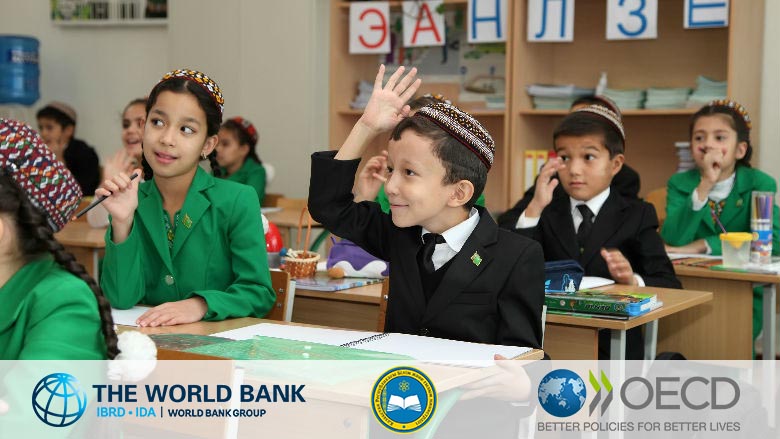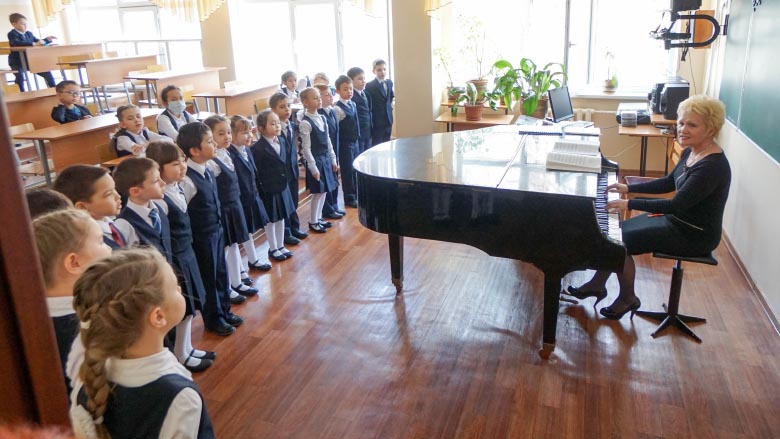Background
The topic of modern schools and preschools has received much attention in recent years. Several high and middle-income countries have implemented programs to inform and support the modern school environment. The Organization for Economic Cooperation and Development (OECD), the World Bank and other development partners are supporting research activities and investment operations in countries to improve the learning environments for children. The driving forces behind this new movement are:
- new requirements of the education system (driven by PISA and more broadly skills/competencies agenda);
- greater attention to a variety of learning methodologies (from conventional classes to group work, individual and group projects);
- expansion and integration of ICT in education;
- renewed interest in learning environments conducive to learning (acoustic, lighting, air quality);
- the need for increased efficiency of architectural solutions.
The new environments in education are based on a combination of findings from the field of pedagogy, children psychology and architecture. The learning environment is seen as a “third teacher” that supports parents and teachers as a spatial frame for the education process. Hence, it influences what can happen in school and impacts student learning. For instance, an improvement in school conditions from extremely bad to good state was associated with an increase of approximately 10 percent of a standard deviation in learning achievement.
A recently published study in the UK shows that the impact of moving an ‘average’ child from the least effective to the most effective space would account for 1.3 sub-levels (when pupils typically make 2 sub-levels progress a year).
The approach to the improvement of the school environment is country specific; however, there are major principles that may allow creating more child-centered, efficient and innovative environments.
The World Bank and its partners in the OECD Center for Effective Learning Environments (CELE) have extensive experience in middle-income countries in reforming countries’ approach to learning environments. This experience may inform the development agenda of Europe and Central Asia.
Objective
The objective of the seminar is to facilitate inter-regional knowledge sharing and transfer on education innovations in learning environments. The proposed seminar/workshop would include a mixture of sessions on:
- educational architecture;
- the approach to arrange educational spaces in existing schools for better student learning;
- approaches to assess whether the school environments are or not conducive to learning.
It is also expected that country delegations would reflect on how the environment may aid student learning and the possibilities for further Bank support to the countries in this area.
Audience
The audience for this event includes policy makers from Europe and Central Asia (ECA) countries, including: Kyrgyz Republic, Tajikistan, Uzbekistan, Kazakhstan, Turkmenistan, Azerbaijan, Russian Federation, Belarus, Moldova, Serbia, Romania, Georgia, and Armenia. The working languages will be English and Russian. The event will also bring together all education global practice specialists who lead the research and operational work in 31 countries of the ECA region.
Modality
The event would include two days of interactive work and is based on presentations, interviews, round tables and group work. A second day of the event would include the virtual school visits with consecutive group discussions.

